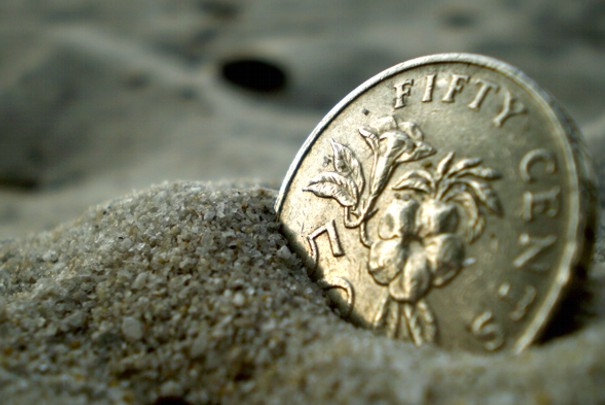christian living
We are all citizens of a country. Whether we are natural-born citizens or become citizens by other means, we each maintain citizenship with a nation. Each country is identified by the attributes of the country, its landscape and people. However, within this post, we’re addressing those that are citizens of a different type of country – the country of Roam.
Roam is a ‘place’ where its citizens are identified by the improper use of their eyes, ears, mouth, hands, and feet. They use their eyes to roam up and down people for sexual pleasure (Matthew 5:27-28); ears to listen to all types of gossip and evil (Proverbs 16:28, 18:8); hands to touch unclean things (and people) unworthily (2 Corinthians 6:17-18); and feet to travel to places they ought not go (Proverbs 1:10-19).
Luke 10:38-42 – Now it came to pass, as they went, that he entered into a certain village: and a certain woman named Martha received him into her house. And she had a sister called Mary, which also sat at Jesus’ feet, and heard his word. But Martha was cumbered about much serving, and came to him, and said, Lord, dost thou not care that my sister hath left me to serve alone? bid her therefore that she help me. And Jesus answered and said unto her, Martha, Martha, thou art careful and troubled about many things: But one thing is needful: and Mary hath chosen that good part, which shall not be taken away from her.
When Jesus came to Martha’s house, she was cumbered (driven mentally, over occupied, distracted)6 about serving. Her sister Mary was also at her house and helped her serve for a time, but left to sit at Jesus’ feet and listen to His word. Martha later came to Jesus and desired Him to say something for Mary to help her again. Jesus told Martha that she was careful and troubled over many things, but Mary had chosen that good part and it would not be taken from her.
Jesus described Mary choosing that good part. Martha’s part may not have been bad (as something sinful), but when compared to Mary’s choice, it was not better. In our view of the their lives, we can learn four things:
Photo courtesy of Stock.XCHNG.com/zasvedogov
Psalm 34:8 – O taste and see that the LORD is good: blessed is the man that trusteth in him.
There are times when we are offered sample foods or want to try (or taste) what someone else has. When we try (or taste) the particular item, we make a determination on whether we want more for ourselves. The same occurrence happens for those in the Lord.
Taste and See
When a person is first introduced to the Lord, they enter into a ‘trial period.’ They may wonder what Christianity is about and desire to learn more about God. Sometimes they have no idea what to expect when they come to church or meet other Christians. They are coming for a taste.
Others may experience a situation where the Lord intercedes on their behalf or another person close to them. They have become first-hand witnesses of something the Lord has done. They have received a taste.
The taste we receive is an understanding that the LORD is merciful and gracious, slow to anger, and plenteous in mercy (Psalm 103:8). We taste His goodness, mercy, love, and grace. We witness His care and concern for His children and even those that are far from Him. We see this and can testify to it. We have received a taste.
Trust
As we come to take a sample of something and find that it’s good, we’ll typically go out to purchase more for ourselves. If we tried a sample food at a restaurant and like it, the next time we return, we’ll request a platter for ourselves. We have come to trust in that taste.
When a person asked for your help and you came to their aid, that person learned that you were dependable and could be relied upon for further assistance. That person has come to trust in that taste.
As we learn more about the Lord’s goodness, we too must come to trust in the ‘taste’ we received from Him. In doing so, we must understand the following:
1. We can no longer take samples. Have you ever seen someone trying to become full eating only samples? That person would eat countless samples hoping to be filled without buying the product. Samples are good, but as we learn that they are good, we must move on to the purchase. As we tasted and found how good the Lord is, we must move on to trusting in Him.
2. Trusting God will cost you. The word trust is translated in the original Hebrew as to confide or hope in God.1 In the best and worse of days, you can place your trust, confidence, and hope in the Lord. You have already tasted that He is good, merciful, and loving. Now, He wants you to trust Him in the quiet seasons of your life; in the moments when there seems like there’s no way out; to trust in His decisions and Word when everyone else doubts. This is where He wants us to be. Tasting is free. Trusting will require a lot more.
3. People that trust in the Lord are blessed. The Hebrew word for blessed is translated as happiness or blessedness.2 Those that trust in the Lord become happy in Him. This is more than what a sampling of God can provide. This happiness fills the heart and soul as you immerse yourself more in the Lord. An intimacy develops that draws you closer, wanting more.
A taste of the Lord cannot give you the same ‘experience’ as trusting in Him. The Lord is good and merciful to the just and the unjust (Matthew 5:45), but there are some things we may not be able to attest to without a taste of His goodness and love.
1: Blue Letter Bible. “Dictionary and Word Search for chacah (Strong’s 2620)”. Blue Letter Bible. 1996-2012. 5 Feb 2012. http:// www.blueletterbible.org/lang/lexicon/lexicon.cfm?Strongs=H2620&t=KJV. 2: Blue Letter Bible. “Dictionary and Word Search for ‘esher (Strong’s 835)”. Blue Letter Bible. 1996-2012. 5 Feb 2012.http://www.blueletterbible.org/lang/lexicon/lexicon.cfm?Strongs=H835&t=KJV.
Psalm 1:1-5 – Blessed is the man that walketh not in the counsel of the ungodly, nor standeth in the way of sinners, nor sitteth in the seat of the scornful. But his delight is in the law of the LORD; and in his law doth he meditate day and night. And he shall be like a tree planted by the rivers of water, that bringeth forth his fruit in his season; his leaf also shall not wither; and whatsoever he doeth shall prosper. The ungodly are not so: but are like the chaff which the wind driveth away.
The first Psalm begins with how a man can be blessed. Immediate attention is given to those characteristics:
1. A blessed man does not walk in the counsel of the ungodly. The ungodly may say if someone hits you, hit them back twice as hard. However, the Word of God calls us to love, forgive, and show mercy. A blessed man must be cautious of the sources they receive counsel. A blessed man must allow the scriptures and godly counsel to direct and guide them.
5 Ways We Honor God
#1: Make the two greatest commandments your life’s pursuit.
#2: Do not be ashamed to live as a child of God among the world.
#3: Find joy in obeying God’s Word by meditating on it day AND night.
#4: Represent God as His ambassador in all situations.
#5: Pray throughout the day.
Am I enough?
When you consider the grandeur, majesty, grace, and love of God, this question should rest upon your thoughts and heart. When you think about the many things that stand in the way of you and the Lord, is He enough? In the midst of temptation, is He enough? Is He worth more than money and status? Is the Lord enough for you to turn from sin and live for Him. That’s it. It’s just that simple.
Am I enough?
In our lives exists a shadow. This shadow can be compared to our own shadow, but it has different intentions. The shadows from the sun reflect our image unto another object. However, the shadow of sin seeks to reflect its own image within our own lives.
The intention of the shadow of sin is to control the object in which it follows. It wants nothing more than to control the life that it tracks. It wants to be in control and will wait for its moment. It often seems like at every moment, turn, and direction of our day, temptation and sin are waiting. So what must we do? Are we forever doomed to live under the shadow of sin and darkness?! NO!
Follow Us
Search the site
Disclaimer
Privacy Policy
Terms and Conditions
Website Information








